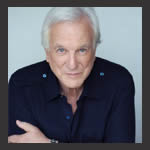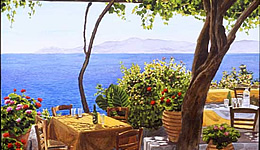As one reaches 50, one of the acceptable tradeoffs between experience and the vitality and optimism of youth is the opportunity to bring perspective and honesty to one’s thoughts. And a greater level of consciousness to one’s decisions.
We are all on this planet for a very short time. We all start with iniquitous blessings and gifts but thereafter we all have choices.
Few it seems, even the seemingly intelligent, truly reach the narrow refines of Maslow’s Pyramid - beyond the notion of measuring our achievements in terms of what we have rather than who we are and what we do?
Notwithstanding the inequality of so many of the world’s population being entrapped in a life of poverty (at the base of Maslow’s Pyramid) where the need to strive for basic life securities is an overriding necessity and priority, we live in an age where more people than ever have an opportunity to make a conscious choice to live a more fulfilling life.
Understanding life’s riches can be intuitive but it also requires a conscious pause from the maelstrom of life to make the space to reflect on how we really want to use our time.
“We all want to be famous people, and the moment we want to be something we are no longer free.”
Jiddu Krishnamurti (1895-1986). Indian philosopher, writer and speaker.
We live in an epoch of celebrity, obsessed by entertainment. Our value sets are under constant assault and progressively eroded by a capricious and pernicious media culture where jeopardy and confrontation are editorial mandatories. Truth is what the techno herd believes to be true or sees on screen. Cynicism is seen as a synonym for experience or worse, wisdom. Greed, vanity, ego, self-interest, disloyalty, hubris or rudeness all seemingly need no excuse or even justification.
More alarming still is that these behaviors have now become almost aspirational in our society. They are the credo of the zealous, would-be upwardly mobile and financially successful classes. It seems that personality is everything and character is increasingly irrelevant. Cash and fame are the only measures of consequence; the squalid populist arbiters of success.
“There is no heavier burden than having too many desires.”
Laozi (6th Century BC). Chinese philosopher.
In my view, there is an irrefutable correlation between values, thoughts, actions, character and destiny. Values formed by nature and nurture do not just evaporate but they can become choked by exposure to so many corrosive pressures. If you lose the correlation between your values, thinking, and habits then you really do lose your way; your character and destiny will be affected.
There is already a plethora of books featuring purportedly wise and inspiring quotations amid a burgeoning abundance of self-help books—a fact which must say something about a widespread, underlying need in society for direction in reframing our values and behavior.
Although the creativity behind a great many of these books is well intended, a significant number are merely commercial rejoinders responding to self-serving aspirations. It is unquestionably true that many people believe that these books will help them successfully prosecute shallow, short term imperatives in the mistaken belief that the headlong pursuit of certain socially revered achievements and, in particular, the acquisition of material wealth, will result in them reaching a form of euphoric emotional zenith.
In addition to the enduring principles of Maslow which I think warrants study in schools , I have developed an interest about the building blocks and impact of having good self-esteem. No single set of principles more positively influences personal growth and happiness.
The foremost thinker and writer on self esteem is surely Dr Nathaniel Branden. His knowledge, insights and writings about the value and context of self esteem within contemporary living are inspiring. His understanding of cognitive thinking and its application to positive ends within the pressures of modern life is far reaching as his extraordinarily insightful quote reveals:
It takes intelligence to be happy.
It takes wisdom to know how to make oneself happy.
Dr. Nathaniel Branden
 |
| www.nathanielbranden.com |
If the study of Maslow is too onerous then I would highly recommend a book by Paul. W King who wrote a more user friendly book called ‘Climbing Maslow’s Pyramid’. It is a very readable work that will positively impact how you view life and assist you in making better choices.
At the end of the book Paul includes a thought provoking poem by Constantine P. Cavafy, written in 1911 which I reproduce here.
IthacA
When you set on your journey to Ithaca,
pray that the road is long,
Full of adventure, full of knowledge.
The Lestrygonians and the Cyclops,
the angry Poseidon - do not fear them:
You will never find such as these on your path,
If your thoughts remain lofty if a fine
emotion touches your spirit and your body.
The Lestrygonians and the Cyclops,
the fierce Poseidon you will not encounter,
if you do not carry them in your soul,
if your soul does not set then up before you.
Pray that the road is long.
That the summer mornings are many, when,
with such pleasure, with such joy,
you will enter ports seen for the first time;
Shop at Phoenician markets,
And purchase fine merchandise,
Mother-of- pearl and coral, amber, and ebony,
And sensual perfumes of all kinds,
As many sensual perfumes as you can;
visit many Egyptian cities,
to learn and learn from scholars.
Always keep Ithaca in your mind.
To arrive there is your ultimate goal.
But do not hurry the voyage at all.
It is better to let it last for many years;
and to anchor at the island when you are old,
rich with all you have gained on the way,
Not expecting that Ithaca will offer you riches.
Ithaca has given you the beautiful voyage.
Without her you would never have set out on the road.
She has nothing more to give you.
And if you find her poor, Ithaca has not deceived you.
Wise as you have become with so much experience,
You must already have understood what Ithacas mean
Constantine P. Cavafy. (1911).


